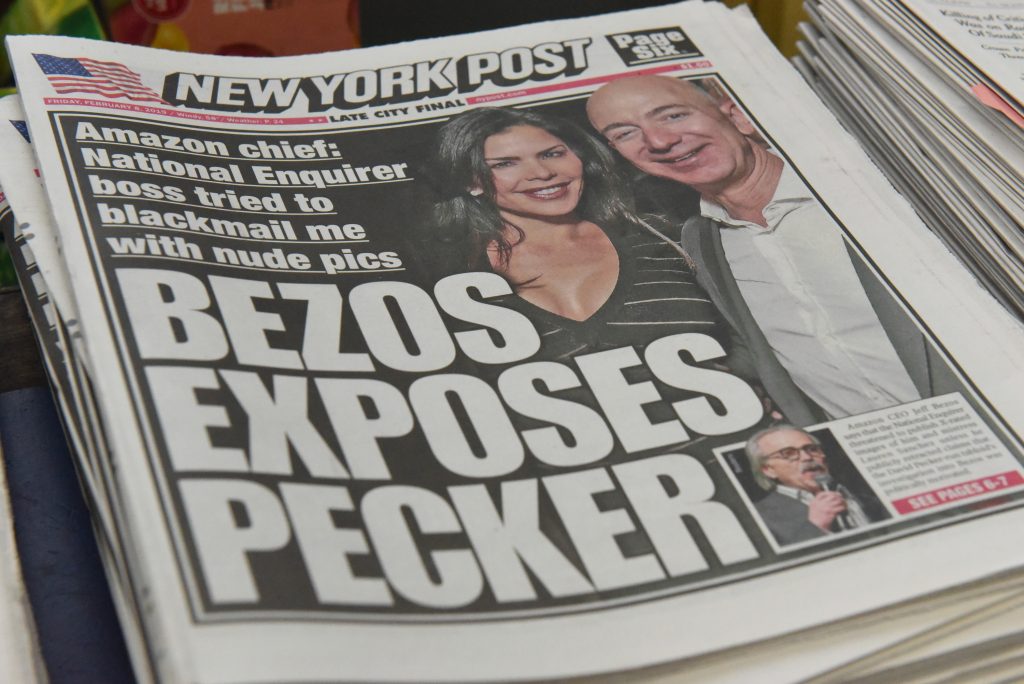Jeff Bezos owns Amazon and the Washington Post newspaper (aka the WaPo). The amazing success of the first company allowed Bezos to buy the second one. But all is not rainbows and unicorns for the richest man in the world. Bezos is divorcing his wife of 25 years after engaging in an illicit affair with Lauren Sanchez, a TV news reporter. But wait, there’s more…

Pictures and text messages from the affair were leaked to the National Enquirer, whose CEO, David Pecker, is a long-time friend of President Trump. In case you didn’t know, there is no love lost between the President and Bezos, largely because of the critical coverage of the Trump Presidency by the WaPo.
Now AMI, parent company of the National Enquirer, is being accused by Bezos of blackmail and extortion for threatening to release more lurid photos unless Bezos backed off from going after AMI. If this isn’t all strange enough, there’s even speculation that Sanchez’s brother may have been the one who leaked the photos.
Tabloid newspapers found in supermarket checkout aisles have always trafficked in sensational and unseemly “news” especially those stories involving celebrities, money, and sex…and this story has it all. Add a little political intrigue with the Trump connection and you have a perfect fire-storm of scandalous gossip masquerading as journalism.
This may not be the kind of journalism that the Founding Fathers wanted to protect when they wrote the First Amendment, but it still benefits from its protections. Media history buffs may recall James Thomson Callender, a scandalmonger whose attacks on our earliest Presidents led to the Sedition Act. According to the Digital History website, “Attacked by his critics as a ‘traitorous and truculent scoundrel,’ Callender defended himself on strikingly modern grounds: that the public had a right to know the moral character of people it elected to public office. Although he has often been dismissed as a ‘pen for hire,’ willing to defame anyone, Callender was much more important than that. His life underscored one of the most radical consequences of the American Revolution. The Revolution ensured that ordinary Americans would be the ultimate arbiters of American politics.”

